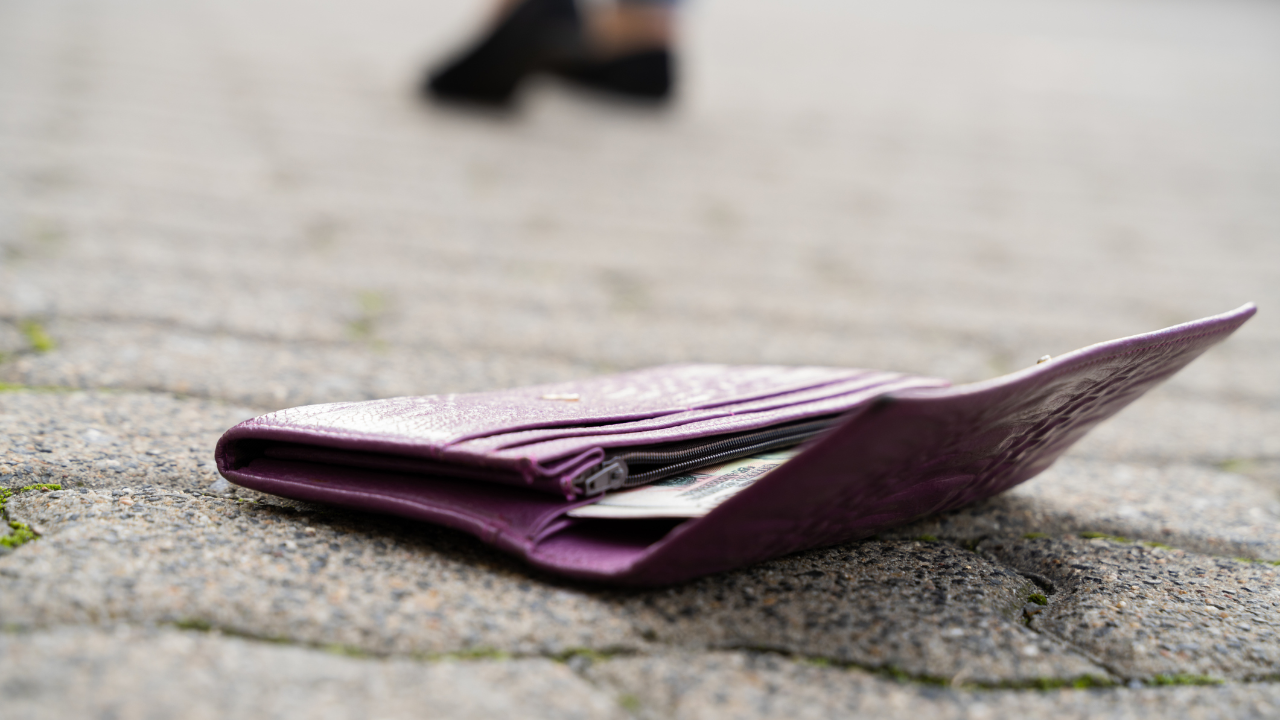Will a change to my credit card number hurt my score?

Key takeaways
- Changing your credit card number should not impact your credit score, especially if you’re just ordering a replacement card but still have your original card.
- If your credit card or credit card number was lost or stolen, you’ll have to do more than just replace your card if you want to make sure your identity is safe.
- If you wait too long to take action after losing your credit card or having it stolen, you could find yourself dealing with repercussions.
Some people are lucky enough to never lose a credit card or have their card or number stolen. But most of us, unfortunately, will have something like this happen at least once in our lives. If this happens to you, you can request a replacement card with a new credit card number from your issuer without penalty if you report the incident quickly. But that begs the question: Will a change to your credit card number hurt your credit score?
The answer, in most cases, is no. But it’s a good idea to learn more about why, when and how to request a replacement card with a new number. You should also know what to do after your original card has been stolen or lost or after you’ve suffered from identity theft that involves your card. If you’re not careful, your old number may come back to haunt you.
Why you might need to change your credit card number
There are actually several reasons why you might want to request a replacement credit card with a new credit card number, including:
- Your physical card is stolen, lost or compromised.
- Your credit card number, but not the card itself, has been stolen and fraudulently used.
- Your card number was exposed in a data breach or hacking event.
- You want to split up your finances following a separation or divorce involving a partner who had a duplicate card on your account.
If your card or account data is misplaced, stolen or compromised, you will definitely need a new credit card number. This will keep the old card number from being used fraudulently and prevent you from being on the hook for any unauthorized charges.”— Zac King, Director of card services, Georgia’s Own Credit Union
The effect on your credit and wallet
Losing your physical card, having your card stolen or suffering from a data breach or identity theft can be stressful. Bad actors can attempt to use your pilfered plastic or the card number to make fraudulent purchases. Left unchecked and unreported for an extended time, these incidents could leave you responsible for some of these transactions, as well as lower your credit score and harm your overall credit.
But the good news is that if you act quickly and contact your credit card company, your credit score should not be negatively affected, nor will you be forced to pay for what thieves charge on your stolen card.
“There should be no impact on your credit if you request a replacement credit card from your issuer and use that new card, assuming the issuer properly records that the closed card is being replaced by the newly issued card,” says King.
Personal finance pro Andrew Lokenauth, owner of TheFinanceNewsletter.com, agrees.
“Getting a new credit card number will not hurt your credit score. Your account history will remain intact — only your credit card number will change, which will be linked to the same account you’ve had open with that issuer. This change should also not affect your credit reports,” he says.
According to the Federal Trade Commission, if your credit card is stolen or lost, federal law limits your liability for charges made without your permission. Here’s a breakdown of these protections:
| Action | Result |
| You report your credit card’s theft or loss before someone uses it. | You are not responsible for any charges you didn’t approve. |
| You report your card’s loss or theft after someone uses it. | The maximum you could be responsible for is $50. |
| Your account number is used but your physical card isn’t stolen or lost. | You are not responsible for any charges you didn’t approve. |
What to do when you need a new credit card number
If you need a new credit card number because you’re separating or divorcing from a partner who shares that account, simply call the number on the back of your card, explain the situation and request a new card and number.
But if your card has been stolen, lost, compromised or used fraudulently, you need to get a hold of your card issuer as soon as possible. If the card or number is used to make unauthorized charges, and you wait too long or fail to contact your issuer, these transactions will eventually be reported to the three credit bureaus (TransUnion, Experian and Equifax) if you don’t pay for those transactions on your credit card bill. Your credit score will likely drop as a result.
You can avoid those repercussions if you act quickly. If your credit card info was stolen, especially if your identity was stolen along with it, you should follow these steps:
Immediate actions
- Check your accounts. Review your account transactions and make a note of any fraudulent charges you notice. If your card issuer has a mobile app, you could check there to see if you have the option to instantly freeze your card while you get ready to call your issuer.
-
Contact your credit card issuer immediately. Tell them about your findings by calling your issuer’s fraud hotline.
- American Express: 800-528-4800
- Bank of America: 800-732-9194
- Capital One: 800-227-4825
- Chase: 800-955-9060
- Citi: 800-950-5114
- Discover: 866-240-7938
- Wells Fargo: 800-642-4720
- USAA: 800-945-6759
- Send a letter to your card issuer. In addition to phoning your credit card company, the FTC recommends mailing a paper letter to that issuer that includes your account number, the date and time when you discovered your card was missing or stolen, any unauthorized charges and the date when you first reported the loss or theft. Keep a copy of this letter and any notes or records of correspondence with your issuer.
If identity theft is a concern
-
Contact the three credit bureaus if your identity was stolen. They can each place a fraud alert on your file within your credit reports.
- TransUnion: TransUnion.com or 800-680-7289
- Experian: Experian.com or 888-397-3742
- Equifax: Equifax.com or 800-525-6285
- Contact the fraud department at your other banks, lenders and financial institutions. Notify them that one of your cards has been lost or stolen, and your identity has been compromised.
- Change your passwords and login info. This goes for any accounts that have your credit card linked to them. Be sure to remove your compromised card info from any online shopping platforms, as well.
After reporting
- Await the replacement card. Most new credit cards will arrive within a week or two, but you can also sometimes get expedited shipping if you need it faster.
Keep in mind: If your card is physically damaged (e.g., a broken chip or faded numbers) but not compromised, request a replacement without changing the card number. Many issuers allow this through their app or customer service line.
What to do and expect after you get a replacement credit card
Once you receive a replacement card and have resolved any unauthorized transactions with your credit card issuer, you can breathe easier. But your due diligence doesn’t stop there. There are other crucial steps you’ll need to take to safeguard your credit, including:
- Destroy your old card. Many paper shredders have slots for cards, so you can use one of those to shred them effectively. You can also demagnetize the strip by using a strong magnet and cutting it with scissors. If you choose to use scissors, experts recommend cutting the card into multiple pieces that can’t easily be pieced together, as well as throwing out the pieces separately.
- Ensure that automated payments on your old card are transferred to your new card. If you automatically paid for things like monthly subscriptions, memberships or utility charges on your old card, future transactions with these vendors may get declined if they aren’t transferred to your new card. If declined, the charges may be sent to a collection agency, which will report the incidents to the three credit bureaus, causing your credit score to drop and impairing your ability to get approved for future credit.
- Check your credit reports routinely. Review your three free credit reports carefully for errors, inaccuracies or red flags related to the old card and account. Work to resolve any of these issues with the credit bureaus.
The bottom line
It’s a relief to know that getting a new credit card number and card to replace your old one should not harm your credit score or credit reports. Just remember to contact your issuer promptly if you can’t find your card or if it’s been used by a thief. Many issuers have mobile apps that can allow you to temporarily freeze cards or request replacements, as well. Then, for better peace of mind, continue to closely monitor your account charges and credit reports.
Why we ask for feedback Your feedback helps us improve our content and services. It takes less than a minute to complete.
Your responses are anonymous and will only be used for improving our website.






